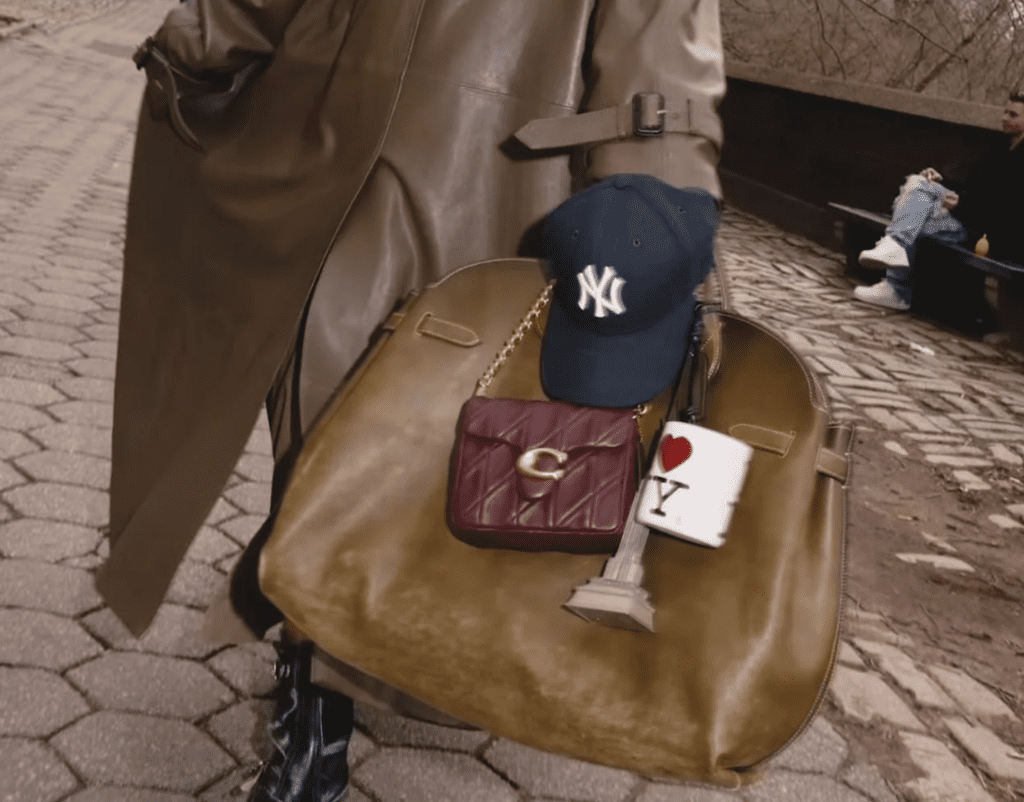A newly amended complaint accuses Tapestry, Inc. and Capri Holdings of orchestrating a secret anticompetitive scheme to eliminate competition in the “accessible luxury” handbag market under the guise of an $8.5 billion acquisition deal – and harming shareholders when the deal ultimately went south. The amended complaint alleges that the fashion companies made materially false and misleading statements about their proposed merger, ultimately serving to inflate the value of Capri’s stock and then causing Capri shareholders to suffer significant losses when its stock price plunged last year after the deal was preliminarily blocked by a federal court in New York.
The Background in Brief: Investors first filed suit against Tapestry and Capri in April 2024 in the U.S. District Court for the District of Delaware, accusing the fashion companies of securities fraud in connection with Tapestry’s proposed acquisition of Capri. The plaintiffs alleged that the companies made false and misleading statements about the competitive landscape and regulatory risks, masking what they claim was an anticompetitive deal designed to reduce competition in the accessible luxury handbag market.
Retail, Resale & Competitive Surveillance
According to amended complaint filed on May 15 in the District of Delaware, FNY Partners Fund LP and David R. Hurwitz (collectively, the “plaintiffs”) allege that Tapestry and Capri executives misled investors, regulators, and the public by portraying their $57-per-share merger as “pro-competitive” and the handbag market as “highly fragmented.” In reality, the plaintiffs claim, internal records show that the companies knew their brands – Coach, Kate Spade, and Michael Kors – dominated the “accessible luxury” handbag segment, a distinct market between mass and high-end luxury.
The 100-plus-page complaint details how executives tracked one another’s retail pricing, marketing, and resale programs, and copied each others’ bag designs. One Tapestry executive reportedly described Michael Kors’s “Pre-Loved” resale program, launched just over a year after Coach’s “(Re)Loved,” as “Coach Reloved rebranded,” while another referred to the Michael Kors brand as an “ankle biter.” At Capri, CEO John Idol closely monitored Coach’s marketing, according to the complaint, and directed his team to purchase and dissect Coach bags for their hardware, with photos of the items later shared internally.
In an internal exchange, Michael Kors executives discussed purchasing several Coach bags specifically to study their hardware. “Hey. Just spoke to John [Idol],” texted one executive. “I knew we should have bought those Coach bags for the hardware. He wants to see them.” Soon after, staff shared photos of their Coach purchases with Idol for review.
This alleged pattern of competitive surveillance and imitation, according to the plaintiffs, undercut the companies’ public claims about fragmented competition and formed a key part of the Federal Trade Commission’s antitrust challenge. As the plaintiffs put it, “Executives at Capri and Michael Kors explicitly referred to Coach as ‘our biggest competitor’” and reacted to each other’s pricing and product moves so closely that “a single marketing email… could force the other to abandon its entire strategy.” Internally, both companies acknowledged that market share gains by one came at the expense of the other.
The plaintiffs allege that the true motivation behind the merger was to reduce competition, raise prices, and limit consumer choice – claims echoed in the the Federal Trade Commission (“FTC”)’s case and supported by internal documents. These records, including market share estimates showing the companies jointly controlled over 80 percent of the accessible luxury handbag market, were cited by both the FTC and Judge Jennifer L. Rochon, who preliminarily blocked the deal in October 2024.
Investors in the Dark
Despite this internal understanding, the plaintiffs allege that the companies made a series of public statements overstating the competitive nature of the market and downplaying the likelihood of antitrust scrutiny. From earnings calls to investor conferences, Tapestry and Capri executives reassured shareholders that the merger would not constrain competition and would close by the end of 2024.
When the FTC issued a Second Request in November 2023, signaling serious antitrust concerns, both companies continued to issue optimistic projections. After the FTC filed its lawsuit to block the merger in April 2024, Tapestry’s CEO Joanne Crevoiserat doubled down, calling the deal “pro-competitive and pro-consumer” – a statement that the plaintiffs now claim was directly contradicted by internal documents already turned over to regulators.
They contend that the integrity of the market for Capri securities was tied closely to investors’ expectations that the deal would close. So, when Judge Rochon issued her preliminary injunction, Capri’s stock price fell nearly 50 percent. Neither company appealed the decision; instead, they terminated the deal.
A Test Case for Merger-Driven Securities Fraud in Fashion?
This securities fraud suit arrives at the intersection of competition law and investor disclosure obligations. The FTC’s case laid bare what the plaintiffs claim is the behind-the-scenes rationale for the merger: reducing discounting, raising prices, and eliminating competition. The outcome of this case could have broad implications for how companies communicate about merger plans – especially in industries with a small number of dominant players and active regulatory oversight.
For now, the plaintiffs are seeking damages for losses sustained when Capri’s share price collapsed. The case also raises a broader issue: when companies present a deal as pro-consumer while internally anticipating reduced competition, does that simply invite antitrust scrutiny – or does it also set the stage for merited securities fraud claims?
The case is In re: Capri Holdings Ltd. Securities Litigation, 1:24-cv-01410 (D. Del.).














